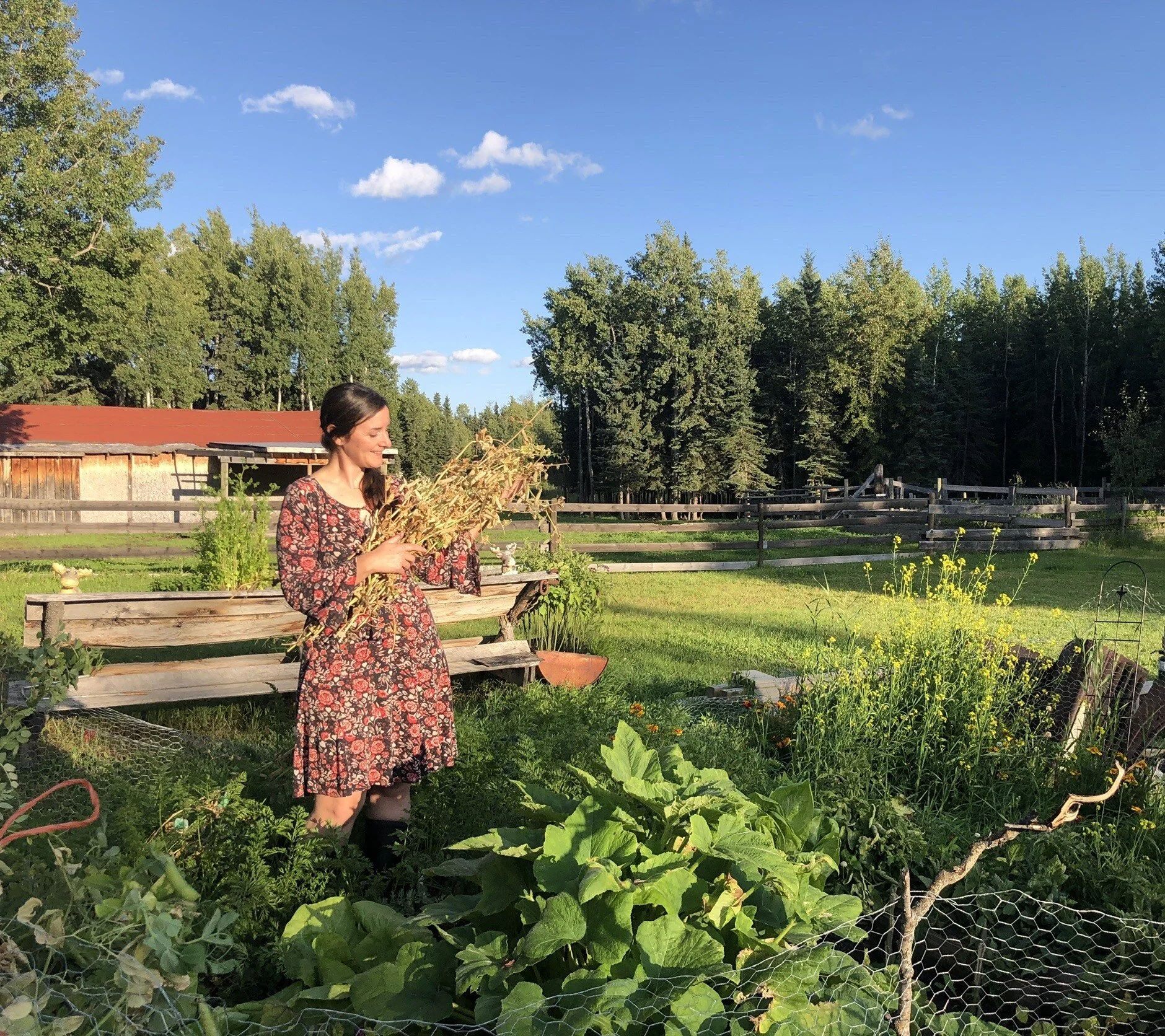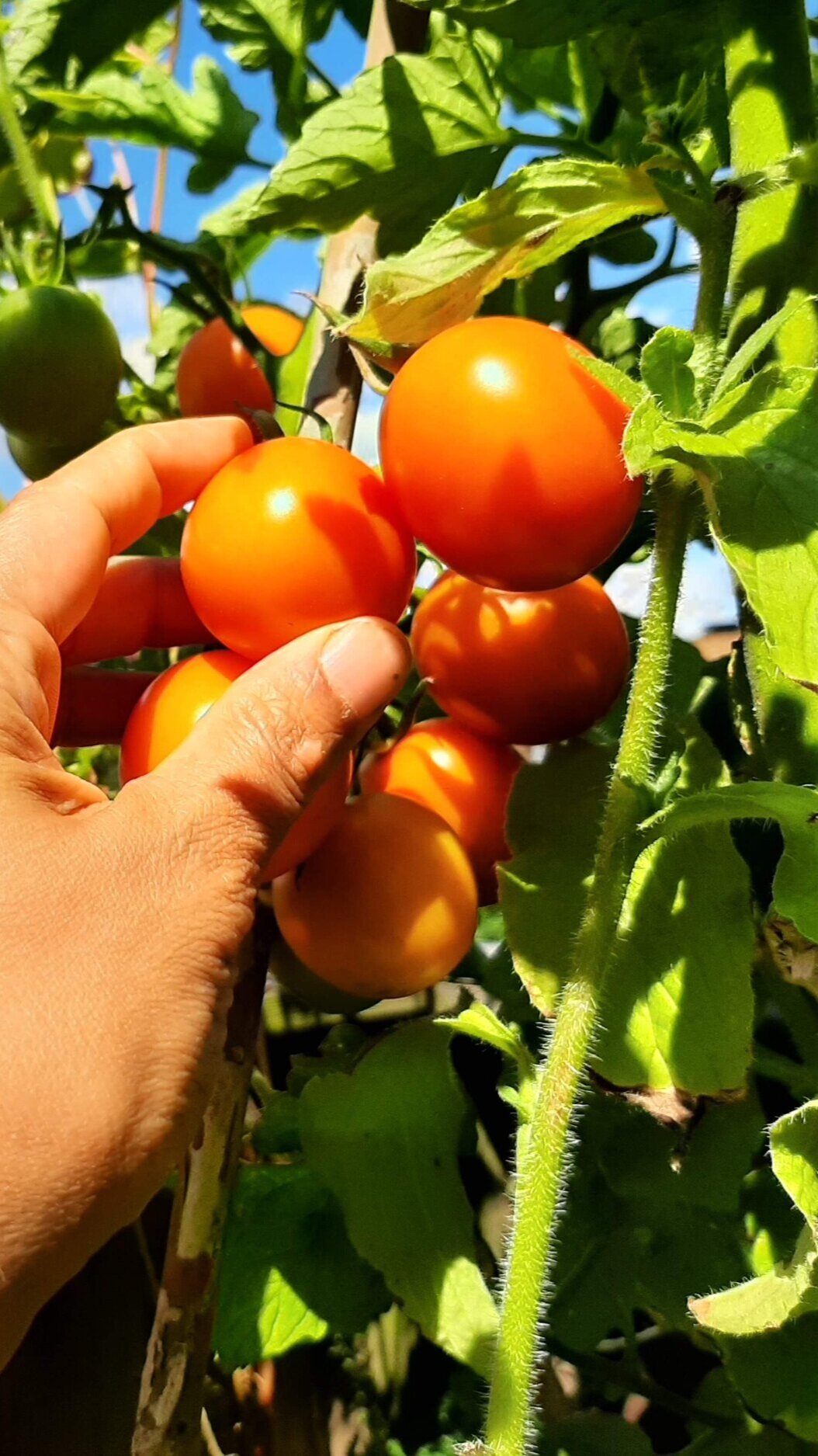Young farmers, women farmers, farmers with disabilities, Black farmers, Indigenous farmers and food providers, farmers of colour, small-scale farmers, 2SLGBTQ+ farmers, and new Canadian farmers often experience additional and unique barriers to enter and succeed in our sector. And just like so many others who farm, equity-deserving farmers bring passion, tenacity and independence, and hold the potential to bring vital innovations along with new crops and management practices that can better adapt to our changing climate and growing conditions.
Farmers for Climate Solutions’ (FCS) mission is to advance policies and programming that support farmers to reduce emissions and build resilience in the face of climate change, and we are committed to ensuring that all of our policy and program proposals acknowledge and serve the diversity within our sector.
FCS seeks to foster greater inclusion of a diversity of people in agriculture. But simply increasing the diversity of the sector, without addressing the systemic barriers equity-deserving farmers face is not good enough. Instead, we need to transform structures, knowledge systems, and practices to better serve equity-deserving farmers. As a first step, we learned directly from farmers with lived experience to develop a Framework and recommendations to better include and support equity-deserving farmers in our work.
The view from Stuart Chutter’s farm on Treaty 4 Territory
Tiffany Traverse holding a bunch of Alaska Pea seed crops at Fourth Sister Farm on Treaty 8 Territory
WHAT WE LEARNED
In addition to the social exclusion described by participants in the Equity Project, the most common barriers identified by the farmers who engaged with the project include access to information, financing, and land.
INFORMATION
Rural communities, where most farms are located, are often tight-knit and can pose barriers to anyone new to the area. Local knowledge is vital for understanding the local climate and soil conditions, where to buy good feed, seed, and equipment, who is available for contract work or labour. This information can be hard to come by when you are not just the new person in town, but visibly different.
FINANCING
Most of the equity-deserving farmers who engaged with the Equity Project are on smaller parcels of land but for whom funding can nevertheless be critical. Financial equity and cash flow can be a real challenge for equity-deserving farmers. Many rely on loans from family, their own savings, a supportive partner, and off-farm work.
LAND
Participants of the Equity Project demonstrated diverse and creative approaches to accessing land. Some access land through multi-generational land ownership arrangements. Many have tenuous access to the land they grow on, farming on land owned by someone else with varying degrees of security of access. This land insecurity impacts what investments they make, perennial planting decisions, and prioritizing infrastructure that can be dismantled and moved, as necessary.
FARMERS FOR CLIMATE SOLUTIONS IS COMMITTED TO ADVANCING OUR EQUITY WORK BY:
Angel Beyde harvesting ripe tomatoes on Treaty 13 Territory
Working towards integrating equity practices throughout all levels of our work
Building our capacity as a team and a coalition
Establishing an Equity Working Group with leadership from equity-deserving individuals
Contributing to collective efforts by sharing our findings and progress with FCS partners, the public and government
TERMINOLOGY
Equity, diversity and inclusion are important ideas. For the purposes of this work, we understand the terms to mean:
Equity describes a degree of fairness in terms of access to the industry and possibility to succeed within the industry.
Inclusion describes the degree to which equity-deserving farmers have an opportunity to enter and succeed in the sector.
Diversity is a measure of success or failure in inclusion.
We also acknowledge that we are all coming to these conversations from a different place. Here is a list of terms used throughout this page and Framework. If there is a word or term you are unfamiliar with, please let us know and we will be happy to provide an explanation or add it to this list:
Equity-deserving farmers represents young farmers, women farmers, farmers with disabilities, Black farmers, Indigenous farmers and food providers, farmers of colour, 2SLGBTQ+ farmers, new Canadian farmers and small-scale farmers.
2SLGBTQ+ is an acronym representing Two-Spirit, lesbian, gay, bisexual, trans, queer, and gender diverse people.
BIPOC is an acronym representing Black, Indigenous and people of colour.
Indigenous in this context represents First Nations, Métis and Inuit, as well as Indigenous Peoples from other lands.
Indigenous farmers and food providers acknowledges Indigenous Peoples as stewards of the land who do not necessarily farm.
Young farmers represent youth between 14-35 years of age (according to the National Farmers Union definition)
New Canadian farmers represent people who are new to Canada and who are farming.
Barriers to enter and succeed can represent systemic, economic, historic, social, and cultural barriers.
Intersectionality describes how race, class, gender, and other individual characteristics “intersect” with one another, to inform a person’s lived experiences, as well as their experiences of discrimination.
Vulnerabilization argues that people are not inherently ‘vulnerable’, but rather ‘vulnerabilized’.
OUR PROCESS
Team
The creation of the Equity Framework was led by six members from different equity-deserving group. Their insights and guidance were invaluable in helping to ensure that the process was as inclusive, effective, and safe as possible. You can meet the team here.
Focus Groups
Five focus group sessions were held in March and April 2021, and gathered equity-deserving Market Gardeners, Livestock Farmers, Fruit Farmers and Grain & Oilseed Farmers for two hours each. Focus Group members each received an honorarium for their participation. In addition, each member had access to trauma-informed counsellor services provided by FCS.
National Survey
Over 50 people responded to a national survey, which provided additional insights into the barriers, strengths and needs of equity-deserving farmers.
Red Russian Garlic harvest at Fourth Sister Farm on Treaty 8 Territory
Equity Project Team
Co-Leaders
ARZEENA HAMIR
Vegetable farmer, Amara Farm, K’omoks Territory, BC
Arzeena earned her Bachelor’s degree in Crop Science from the University of Guelph and a Master’s in Sustainable Agriculture from the University of London, England. She worked as a CUSO volunteer in Thailand and as a researcher in Jamaica, India, and Bangladesh. She was the staff Agrologist for West Coast Seeds from 1997-1999 and served as the Coordinator of the Richmond Food Security Society from 2008-2012, and in 2010 helped launch the Richmond Farm School. She and her husband moved their family to the Comox Valley in 2012 and run Amara Farm, a 25-acre certified organic farm in Courtenay, BC. In 2018, Arzeena was elected to the Board of the Comox Valley Regional District where she serves as both Vice Chair and Director.
ABRA BRYNNE
Food Policy Expert, Traditional Territory of the Sinixt, Syilx, and Ktunaxa peoples, BC
Abra grew up on a farm in BC’s Okanagan Valley, where her family of 13 raised a large portion of their food needs and were members of a local tree fruit marketing cooperative. She has worked closely with farmers and on food systems for thirty years, with a priority on food value chains and the regulatory regimes that impede or support them. She has worked on policy advocacy and transitions in the fisheries, meat, cannabis and organic sectors. Abra is a founding member of many agriculture and food-related organizations, including Kootenay Local Agricultural Society, Food Secure Canada and the Canadian Association of Food Law & Policy. She came out as queer in 1993 and has lived in Sinixt Territory since 1990.
Advisory Committee Members
ANGEL BEYDE
Equity & Organizational Change Manager at EFAO, Treaty 13 Territory, ON
Angel Beyde has worked in Urban Agriculture, regenerative landscaping and non-profits for many years. As Equity & Organizational Change Manager for the Ecological Farmers Association of Ontario, Angel supports EFAO to increase its understanding and take action on anti-racism to better meet the needs of Black, Indigenous and other farmers of colour, who are underrepresented in the organization and the ecological farming movement at large.
Angel is also an Organic Master Gardener, community educator, consultant and facilitator. She is passionate about traditional Afro-Indigenous growing practices ("regenerative agriculture") as key to food sovereignty and climate change mitigation. Other aspects of Angel's work support community mental health, green roof growing, rehabilitating depleted urban soils and restoring urban ecosystem relationships between pollinators and native plants.
JUDY WASACASE
Former Land and Resource Manager, Kahkewistahaw First Nation, Treaty 4 Territory, SK
Judy Wasacase is a proud member of the Kahkewistahaw First Nation in southeastern Saskatchewan in the Treaty 4 Territory. Judy is the former Land Manager for Kahkewistahaw First Nation which manages approximately 29, 000 acres of land on the main reserve, lands south of the main reserve, urban lands in Yorkton and Saskatoon and lands to be turned to reserve status from the Specific Claim 1907 Kahkewistahaw Land Claim. Judy has a wealth of experience and knowledge of treaty rights, land management and environmental management from of over 15 years of working in the areas of lands and resources. She brings her knowledge and understanding to all her work within First Nations communities and territories.
STUART CHUTTER
Cattle and forage crop farmer, Treaty 4 Territory, SK
Stuart Chutter (he/him) is a 35 year old gay farmer raising purebred cattle and forage crops on his first-generation farm. He lives, farms and works with respect on Treaty 4 Territory in Saskatchewan.
Currently the farm operates a purebred cow herd of 125 registered Red Angus and Limousin cattle, as well as producing diverse, multi-species forage crops. Production practices are driven by the five foundations of building healthy soil – keeping the soil covered, minimizing disturbance, planting diversity, keeping a living root long in the season and integrating livestock.
Diversity has been central to Stuart’s farm story. This includes different livestock enterprises and multi-species grazing, crop diversity in mixed forage blends, as well as appreciating that it’s the differences and uniqueness of farms and ranches, and all the people who run them, that make Agriculture the best place to be.
TIFFANY TRAVERSE
Indigenous Land & Seed Steward, member of SeedChange Board of Directors, farmer, guest in Treaty 8 Territory, BC
Tiffany Traverse of Fourth Sister Farm, is a Secwépemc/Settler farmer, land and seed steward, language learner, and food sovereignty advocate. Her passion for feeding people and firm belief in the right to healthy, culturally-appropriate foods for all, drives her work. She is committed to dismantling structural racism in institutions and conducting experimental plant breeding projects to adapt nutrient-dense cultivars to our changing climate. As a guest in Treaty 8 territory, Tiffany participates in variety trials through CANOVI and Seed Savers Exchange, and ongoing Indigenous seed grow-outs, including a rare collection under the mentorship of Métis Seedkeeper Caroline Chartrand. As a volunteer Advisory Council member with the Community Seed Network and Board Member at SeedChange, her hope is to create better access to resources and increase our collective seed and food security and sovereignty. Tiffany’s dedication to Indigenous-led research, also has her participating as a member of Indigenous Climate Action’s Climate Policy Advisory Council.















